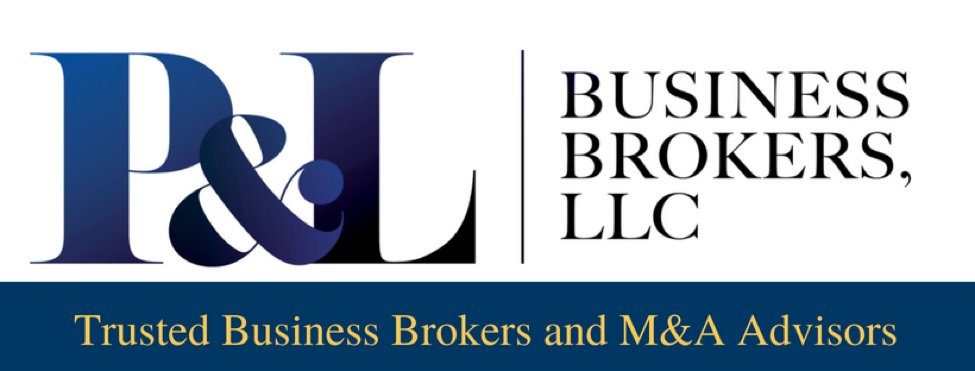Business brokers are professionals who represent buyers and sellers and facilitate the transfer of ownership of privately held businesses. Also known as business intermediaries, investment bankers, and business transfer agents, these professionals bring together parties to effectuate transactions. Sometimes associated with a real estate broker in the purchase and sale of homes or commercial properties, a business broker brings together parties for the sale of businesses (versus properties). Selling a business, however, is a much more complicated transaction. Homes do not have employees, customers, and vendors. Homes do not produce complex financial statements, tax returns, nor have to comply with regulatory and legal compliance requirements.
Business brokers understand all aspects of running a business including accounting, operations, and commercial activities. They have a firm grasp on industry and market dynamics. Additionally, business brokers can develop the valuation or most probable selling price (MPSP) based on years of experience, extensive training, and access to comparative transactional data. While a large majority of business brokers do not have ESQ or CPA after their names, their deep experience with purchase agreements and other legal agreements along with the tax implications of business transactions allows them to work seamlessly with such professionals.
Why Do I Need a Business Broker To Sell My Business?
Time – Selling a business is a time-intensive endeavor. Experienced business brokers have developed processes, tools and enablers that allow for the process to be streamlined. They are adept at identifying potential risks and challenges and developing mitigation strategies to avoid transactions not closing. Additionally, brokers have proprietary databases of potential buyers which can shorten the time to find a qualified and interested buyer.
Focus – A business owner’s focus most likely would be compromised with the time and attention taken to prepare the business for sale, market the business, and engage with potential buyers from initial contact through the deal closure. The broker will seek to minimize the impact of the sale on the continuity of business operations.
Skill & Experience – Lessons are often learned through experience. Whether they are leading practices or challenges faced, a business broker will provide you with invaluable guidance from initial contact through after the transaction closing. Costly mistakes are often made not by ill intentions, but by lack of knowledge and experience.
Attributes of a Qualified Business Broker:
Experience: Selling a business can be a relatively complex process. Just as you wouldn’t hire someone to remodel your kitchen without the requisite skill set and experience, business owners and buyers should look for business brokers that have significant experience in closing transactions. Experience in both sell-side and buy-side representation is also important factor to consider when choosing a business broker as having a balanced perspective often enables the broker to predict and mitigate potential risk. Many brokers will combine experience with education (i.e., MBA, etc.) and pass comprehensive tests to become certified as in the case of Certified Business Intermediary (CBI) designation from the International Business Brokers Association (IBBA) or other industry certifications.
Problem Solving: Every deal has its own nuances and challenges. A highly qualified business broker has experience in all facets of transactions and often brings a problem solving capability to address any obstacles faced. While the broker will serve as your primary advocate, you want a broker who is able to provide solutions to deal compromising aspects.
Storytelling: Selling a business is a combination of art and science. The art is found throughout the transaction lifecycle – from the development of marketing materials to getting to the closing table (and everything in between) – and requires supportive science added in. Finding a business broker who puts in the effort to develop professional grade marketing materials is critical to grab the attention and interest of a larger pool of potential buyers. With the more qualified brokers, you will find the story of the business is told in a concise and engaging manner.
Negotiations: Experienced and qualified business brokers are also very adept at managing the negotiations between the parties. Acting as the agent for the business owner (the principal), the business broker understands the sticking points that may be relevant on both sides and expertly deploys negotiation tactics that will maximize the value of the transaction for their client while not pushing the other side to abandon the deal.
Preparation: Many business owners come to a point where they just want out of the business. They want to list the business for sale as quickly as possible. The problem with this approach is that value may be lost and deals may not close from lack of preparation. A qualified business broker will work with business owners to develop an exit strategy and prepare their businesses for sale. A good business broker will not list the business without having collected the appropriate documentation and information to enable a smooth diligence process.
Confidentiality and Integrity: Confidentiality is not simply having a confidentiality or non-disclosure agreement executed. Qualified business brokers will spend the time to steer clear of “tire-kickers” or competitors looking to gain a competitive advantage. The marketing materials may have to be creatively scripted to not give away the company’s name and intentions of sale. A business broker who maintains confidentiality and integrity throughout a transaction would be a foundational expectation. However, conflicts of interest do arise and the business broker’s character and the character of its firm may be put to the test throughout a transaction when their commission is impacted. Find a business broker who is committed to being your trusted advocate for the sale and life after the sale.
Established Team of Advisors: Qualified business brokers have established their “go to” team of professionals (i.e., attorneys, accountants, financial advisors, banks, etc.) to support the transaction. Working in unison with other advisors allows for the team to be on the same page to structure the deal appropriately, manage negotiations effectively, and achieve the objectives of their client. Many times a business owner or buyer will wish to use a professional of whom they have maintained a long-standing relationship with. It is important to know that not all professionals have transaction experience and the lack of experience can derail the best transactions.
If you are looking to sell your business or acquire an existing business, the time is now to talk to a qualified business broker. Take advantage of a free initial consultation with Michael Lannie, CBI, of P&L Business Brokers, LLC to understand your exit options and begin to formulate your exit strategy roadmap.

